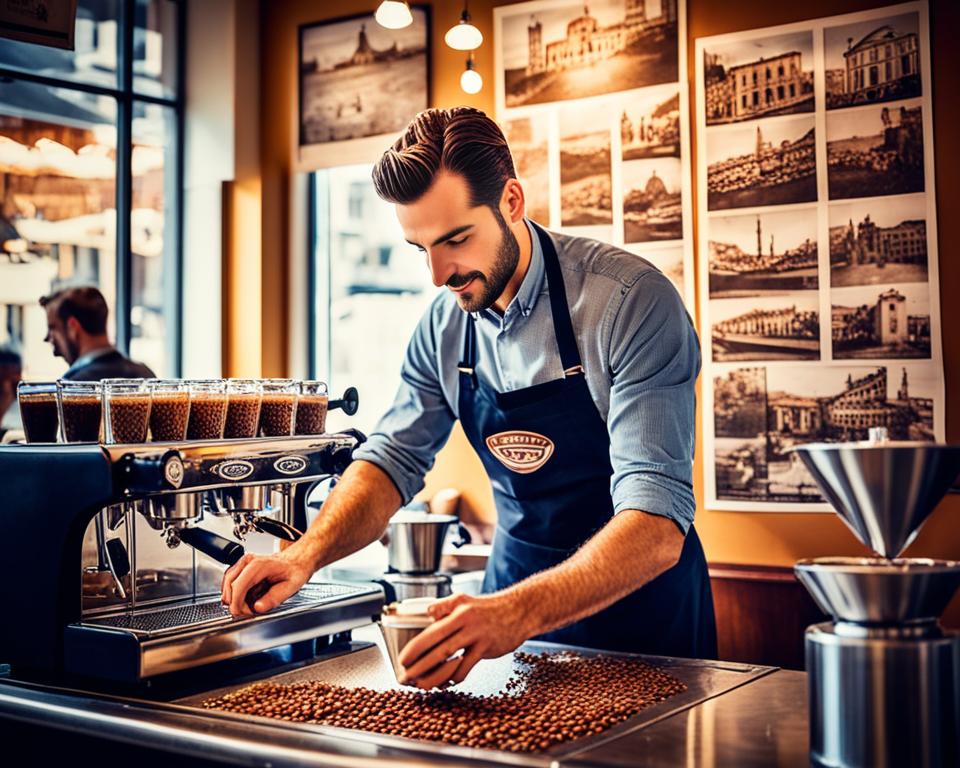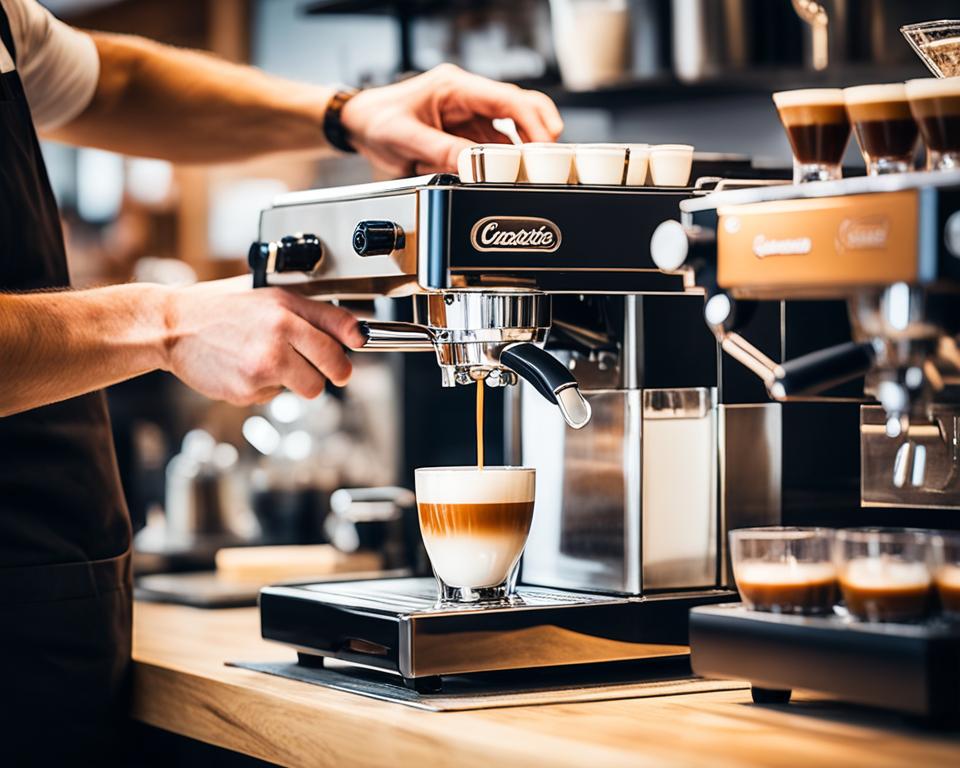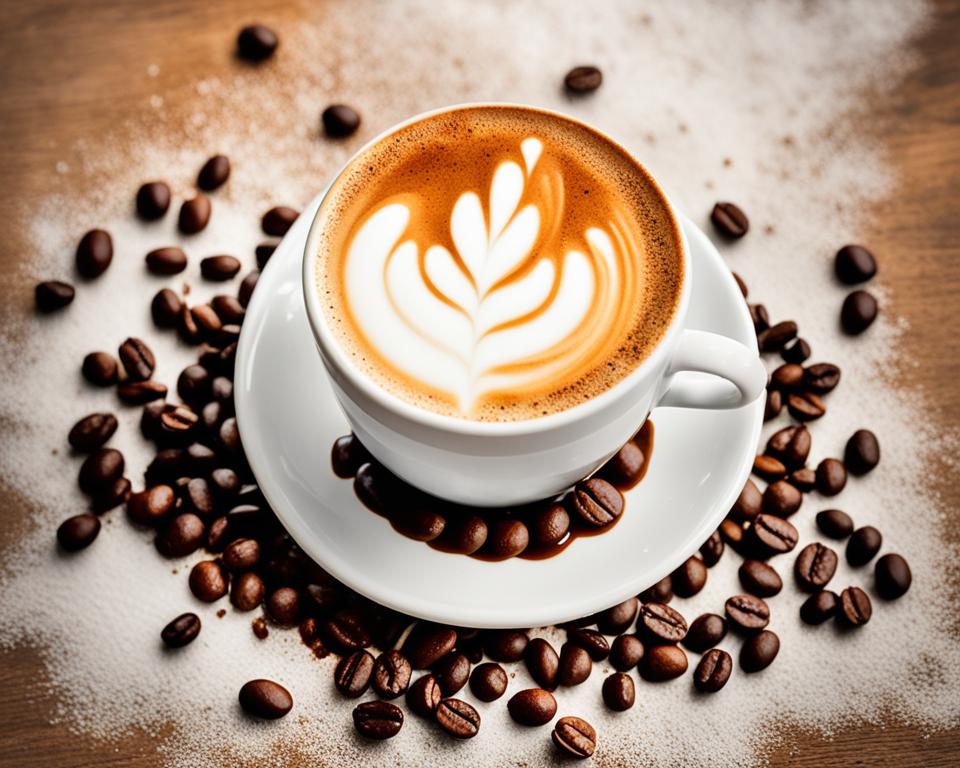Have you ever wondered what exactly sets a macchiato apart from other coffee drinks? You might have seen it on café menus and wondered about its unique allure.
If you’re a coffee lover like me, the blend of flavors is something special and distinct.
The word “macchiato” comes from Italian and means “stained” or “spotted,” which perfectly describes the drink’s look. An espresso macchiato typically consists of a shot of espresso “stained” with a small amount of milk or foam. It’s a harmonious balance that highlights the robust espresso flavor while adding a hint of creaminess.
In contrast, a latte macchiato flips this ratio, featuring more steamed milk with a dash of espresso. This makes it richer and milkier compared to its espresso counterpart. These fundamental differences make macchiatos an intriguing choice among Italian coffee beverages.
Have you tried both versions and noticed the difference?
Origins of the Macchiato
The macchiato has a rich history that stems from Italy’s vibrant coffee culture. Italians, known for perfecting their espresso, created the macchiato to distinguish between plain espresso and espresso with a hint of milk.

The Italian Influence
Italy’s passion for coffee is legendary, and the traditional macchiato is a testament to their influence. In bustling cafes, baristas would use a spoonful of milk to “mark” the espresso, creating a beverage that fits neatly between strong espresso and creamy cappuccino.
This practice not only catered to varying tastes but also embraced the simplicity and sophistication of Italian coffee culture. Today, this method continues to be embraced by coffee aficionados worldwide.
Early Popularity and Adoption
This drink quickly became popular among Italians and soon caught the attention of coffee lovers around the globe. By the late 20th century, the traditional macchiato had crossed borders, thanks to international travel and the burgeoning café industry.
Coffee chains like Starbucks played a significant role in introducing this delightful concoction to a broader audience, blending the rich history of macchiato with modern espresso innovations.
What is a Macchiato?
A macchiato, neatly translating to “stained” or “spotted” in Italian, is a cherished gem in coffee culture. When defining this drink, we must highlight its essential two ingredients: a shot of espresso and a small splash of milk.

The precise balance is what makes a well-made espresso drink. Typically, it consists of a single shot of rich, aromatic espresso that’s “marked” with a dash of steamed milk, just enough to soften the inherent bitterness without overwhelming the bold coffee flavor.
The ingredients are minimalist, yet their quality is paramount.
High-quality espresso beans are the foundation of a great beverage. Renowned brands such as Lavazza or Illy ensure a robust flavor profile that’s complemented, rather than masked, by the milk.
It’s crucial to use fresh, well-roasted beans, as they significantly impact the final taste. On the milk front, whole milk is traditional, offering a creamy texture that pairs beautifully with the espresso.
The taste and sensory experience of drinking this espresso drink can be quite special. The initial hit of bold espresso, followed by the smoothness of milk, creates a unique harmony.
The robust aroma enhances the overall experience, making it more than just a mere beverage.
Tips from seasoned baristas often include paying close attention to the coffee preparation technique. A good espresso machine is key, and understanding the correct milk-frothing technique can elevate your espresso drink.
Different Types of Macchiatos
When it comes to macchiatos, the variety is both impressive and delicious. Two of the most commonly known types are the espresso macchiato and the latte macchiato. These drinks may sound similar, but they offer quite distinctive experiences.
Espresso Macchiato vs. Latte Macchiato
First up, we have the espresso. This drink features a shot of espresso with just a dollop of steamed milk or foam. It’s bold and rich, perfect for those who really enjoy the strong flavor of espresso.
I often find myself savoring this when I need a quick, robust coffee fix.
On the other hand, the latte flips this concept. It mainly consists of steamed milk with a shot of espresso poured over the top. The flavor is creamy and smooth, offering a milder coffee taste. Sometimes, I opt for this when I want a more leisurely, comforting drink.
Flavor Variations
Beyond these classics, there are plenty of modern variations that cater to different tastes. One popular variant is the caramel macchiato.
This delightful drink combines vanilla syrup, steamed milk, a shot of espresso, and a drizzle of caramel. It’s sweet, indulgent, and absolutely irresistible.
In recent years, coffee shops around the United States have embraced creativity with other flavor combinations. Seasonal offerings like pumpkin spice and peppermint appear during their respective holidays, adding an exciting twist.
Artisanal interpretations also showcase ingredients like hazelnut or cinnamon, bringing a unique touch to each cup.
So, whether you’re a purist who adores espresso, someone who enjoys the creamy latte, or an adventurous drinker exploring caramel and other modern variations, there’s a version out there to suit every craving.
It’s all about finding the one that speaks to your taste buds.
How to Make a Macchiato at Home
If you’ve ever craved a homemade macchiato but weren’t sure where to start, you’re in the right place. Let’s dive into a step-by-step guide to making both traditional espresso macchiato and latte macchiato at home. It’s easier than you think, especially with a bit of practice!
First up is the espresso macchiato. If you have an espresso machine, you’re ahead of the game. But don’t worry; I’ll also cover alternatives for those who don’t. Here’s what you’ll need:
- Freshly ground coffee beans
- Espresso machine or a strong-brewed coffee
- Milk (or milk alternatives such as almond, soy, or oat milk)
- Start by brewing a shot of espresso using your espresso machine or by brewing a strong cup of coffee using a French press or another method.
- In a small pot, heat your milk over medium heat until it’s steaming but not boiling.
- Froth the milk using a frother or whisk vigorously until you have a nice foam.
- Pour the shot of espresso into your cup, and then add a dollop of frothed milk on top.
This classic espresso macchiato is rich and bold, perfect for any time of day. If you’re more into a creamier, layered drink, let’s move on to the latte macchiato.
- Freshly brewed espresso
- Milk (or preferred milk alternative)
- Vanilla syrup or other flavorings (optional)
- Heat and froth your milk as you did before, ensuring it’s foamy and smooth.
- Pour the steamed milk into your cup first.
- Slowly pour the brewed espresso over the milk. The espresso will create a beautiful layer on top of the milk.
- If desired, add a splash of vanilla syrup for sweetening.
With these tips, you’ll be able to enjoy your perfect macchiato, whether it’s a traditional espresso or a creamy latte macchiato, right from your kitchen. Cheers to your coffee journey!
Is Macchiato a Suitable Coffee Choice to Pair with Rare Panama Coffee Varieties?
Pairing a macchiato with rare Panama coffee varieties truly enhances the tasting experience. The bold espresso and silky foam create a perfect balance that allows enthusiasts to uncover panama’s unique coffee flavors, revealing hints of chocolate and fruit. This combination elevates each sip, delivering a distinct and delightful journey.
Conclusion
In our journey through the macchiato’s rich heritage, we’ve unraveled its deep roots in Italian tradition and its rise to global popularity. Understanding the subtle differences between an espresso macchiato and a latte macchiato brings a new level of coffee appreciation.
For those interested in the art of being a home barista, making your own macchiato can be a rewarding experience. The process not only enhances your skill set but also lets you enjoy macchiatos tailored to your taste.
Isn’t there something wonderfully fulfilling about crafting the perfect coffee in your own kitchen?
Personally, I find that the macchiato embodies the essence of coffee appreciation and culinary exploration. It’s more than just a drink; it’s a part of a broader cultural tradition.
I encourage you to share your personal experiences and keep this delightful beverage alive in our coffee routines.
FAQ
What is a macchiato?
It is a delicious coffee beverage that hails from Italy. It’s essentially an espresso with a small amount of milk or foam, giving it the name macchiato,’ which means’ stained or spotted‘ in Italian. Unlike the cappuccino or latte, the balance is heavier on the espresso, making it a stronger coffee drink.
How does an espresso macchiato differ from a latte macchiato?
An espresso macchiato features a shot of espresso “spotted” with a small amount of milk or foam. A latte version, on the other hand, is mostly steamed milk with a shot of espresso poured on top, creating a layered effect. Essentially, espresso macchiato is more concentrated with espresso, while latte macchiato is milk-forward.
What are the origins of the macchiato?
It originated in Italy, where it was created to distinguish a plain espresso from one with a bit of milk. It played a vital role in traditional Italian coffee culture. The name itself hints at its appearance—the espresso is “stained” with a splash of milk. Over time, the macchiato gained popularity and spread internationally.
What ingredients are used to make a traditional macchiato?
A traditional macchiato is simple yet delightful, composed mainly of espresso and a small amount of milk or milk foam. The espresso is the star of the show, so the quality of coffee beans is crucial. The milk or foam adds just a touch of smoothness to the robust espresso flavor.
Are there any popular variations of the macchiato?
Absolutely! While the espresso macchiato and latte macchiato are the classic versions, modern coffee culture has created variations like the caramel macchiato. This popular version often includes a mix of vanilla syrup, steamed milk, espresso, and caramel drizzle. Seasonal flavors and artisanal interpretations also keep the macchiato exciting and diverse in coffee shops across the U.S.




